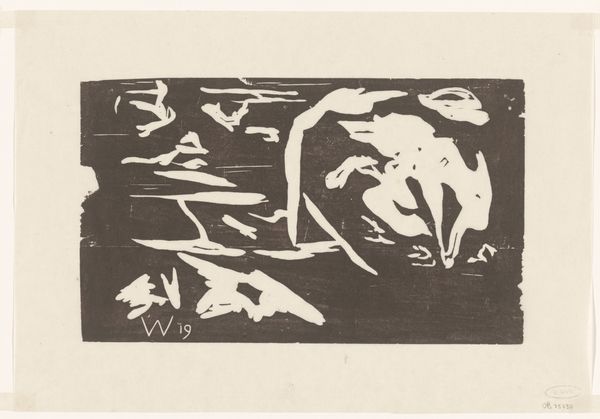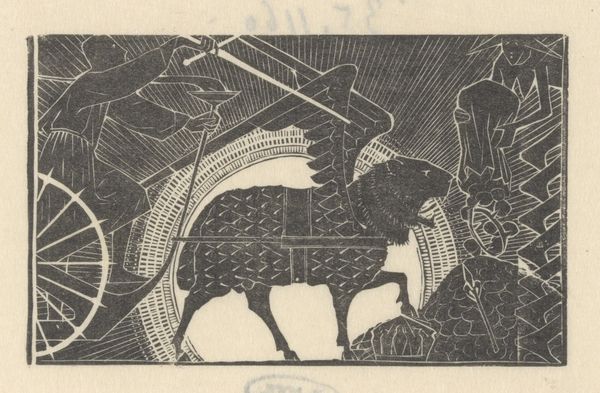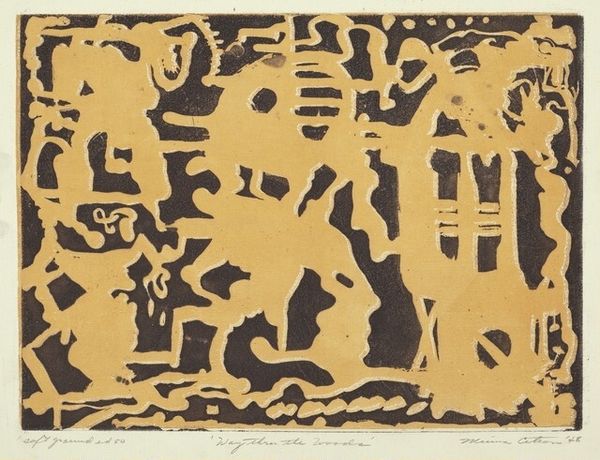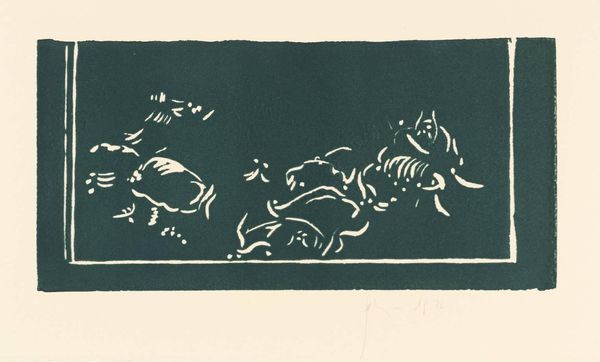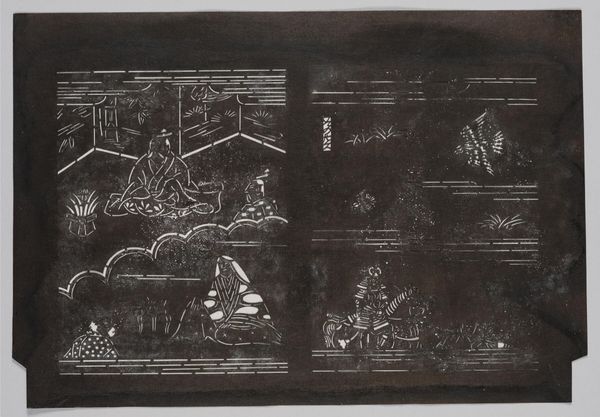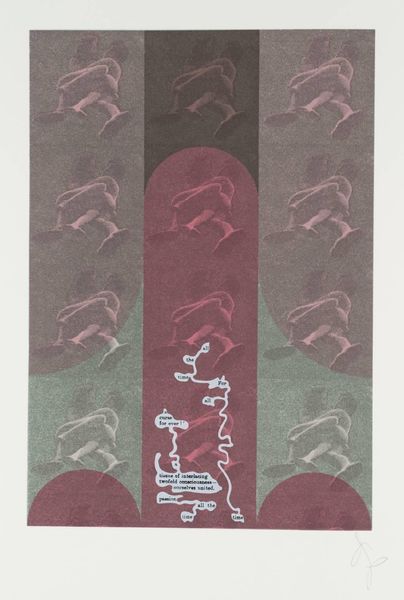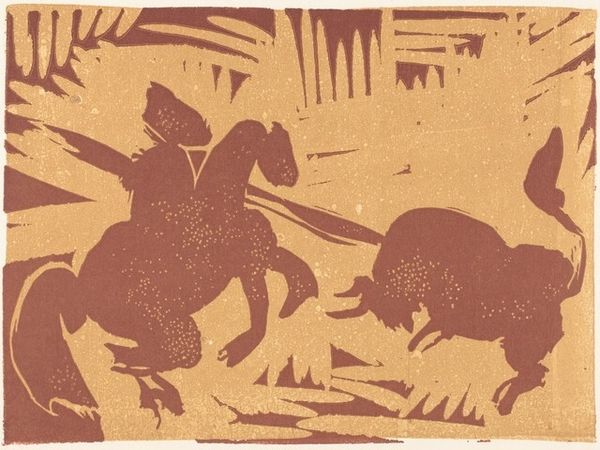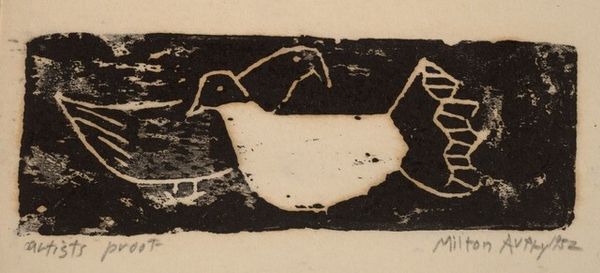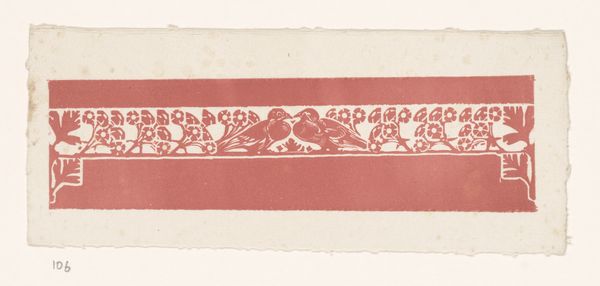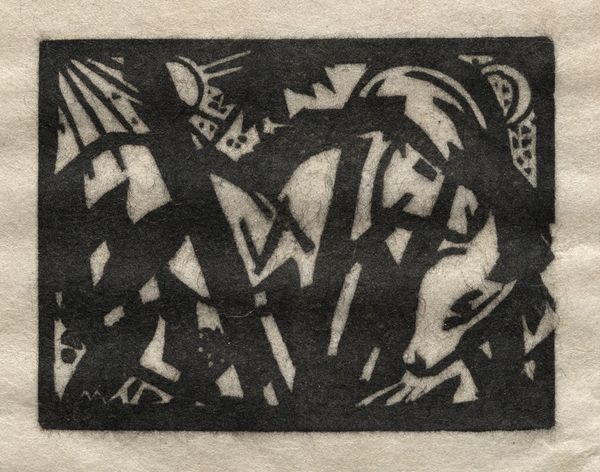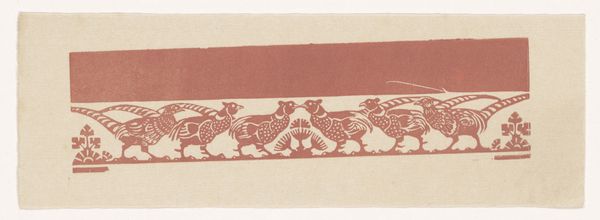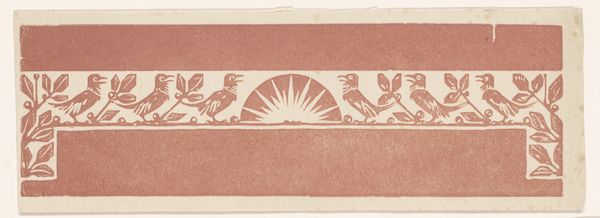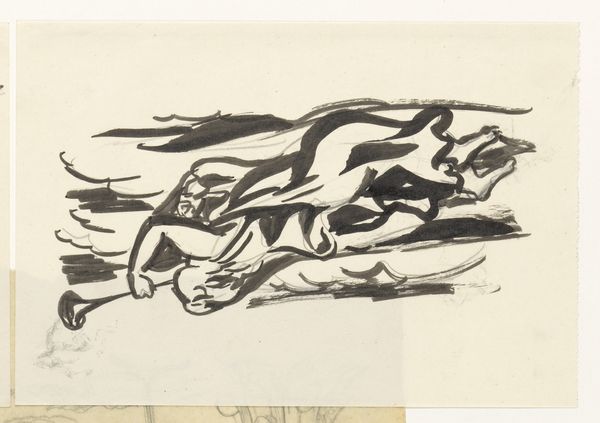
print, etching, paper, ink, woodcut
#
photo of handprinted image
#
narrative-art
#
ink paper printed
# print
#
etching
#
figuration
#
paper
#
ink
#
woodcut
#
symbolism
Dimensions: height 311 mm, width 413 mm
Copyright: Rijks Museum: Open Domain
Editor: We’re looking at Ker Xavier Roussel’s "Women in a Landscape" from 1898, made with ink on paper using woodcut and etching. It’s dreamlike, almost like a frieze from an ancient civilization, but simultaneously modern. What's your interpretation? Curator: The power of Roussel's print, I think, comes from this tension. It references the classical world – the frieze-like composition, the pastoral setting – but does so through a symbolic language that speaks to the late 19th-century anxieties. Note how the figures, rather than engaging in heroic action, are absorbed in seemingly private rituals, evoking a sense of ennui. How do you see the role of women functioning within a social landscape at the end of the century? Editor: They seem like figures from a story I can’t quite grasp. Almost as though Roussel's presenting them as allegories. They’re present in the landscape but feel separate from it, disconnected from each other. Is this a response to specific social or political circumstances? Curator: Exactly. Roussel, like many artists of his time, was grappling with rapid social and technological changes. The traditional roles of women were being questioned, the rise of industrialization led to new forms of labor and leisure, all disrupting existing social orders. This sense of displacement is mirrored in the print's somewhat unsettling atmosphere, a critique, if you will, of modern life as the artist perceived it, in the late nineteenth century, questioning idealized representations. The Symbolist aesthetic sought deeper truths that went beyond appearances. What's interesting to you, reflecting upon this? Editor: That artists like Roussel responded to these shifts by creating such enigmatic works. I find it fascinating how an artist can capture such complexity through symbolic gestures and visual cues, and even how etching enables it. Curator: It gives one much to think about, doesn't it?
Comments
No comments
Be the first to comment and join the conversation on the ultimate creative platform.
